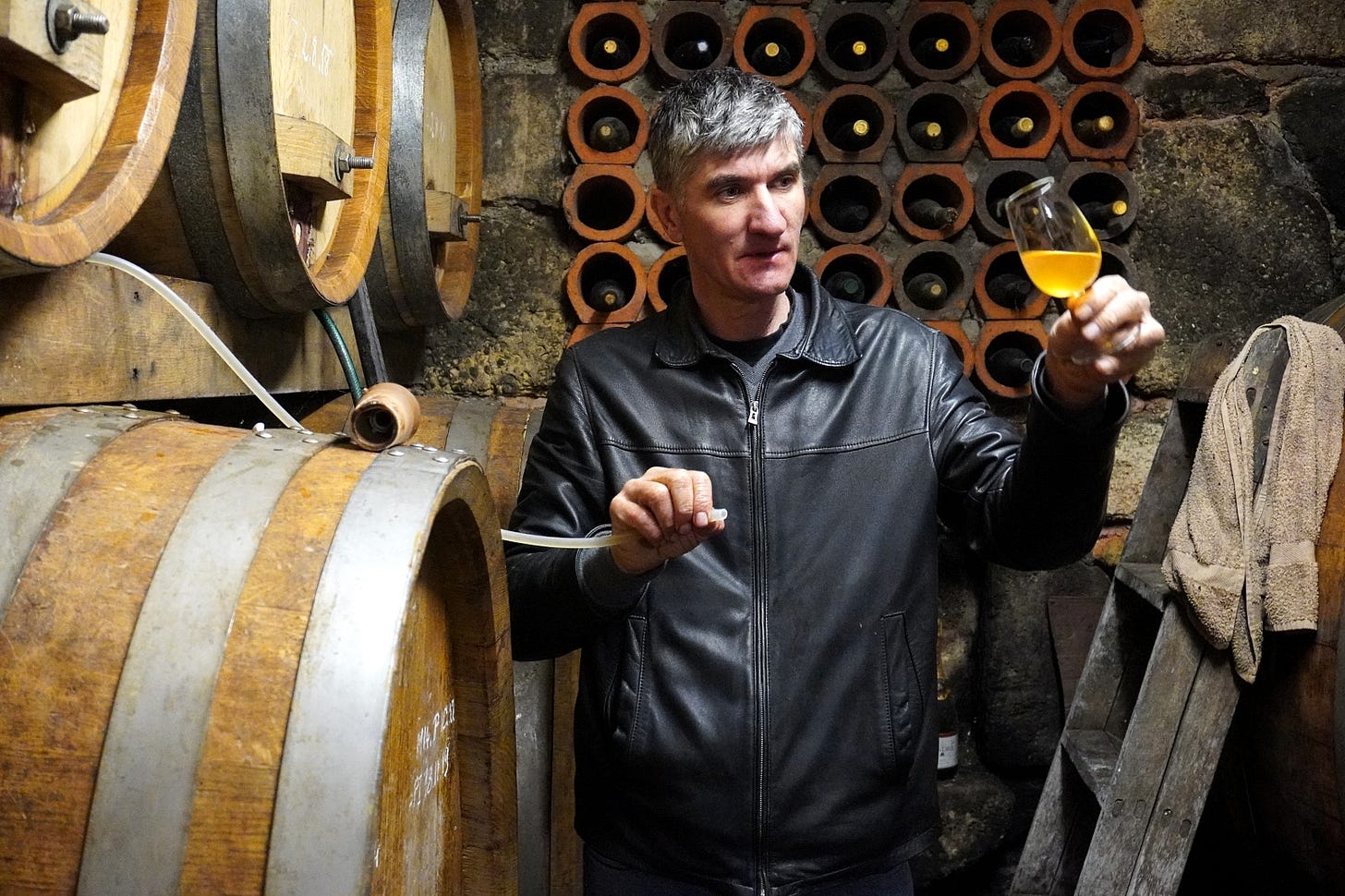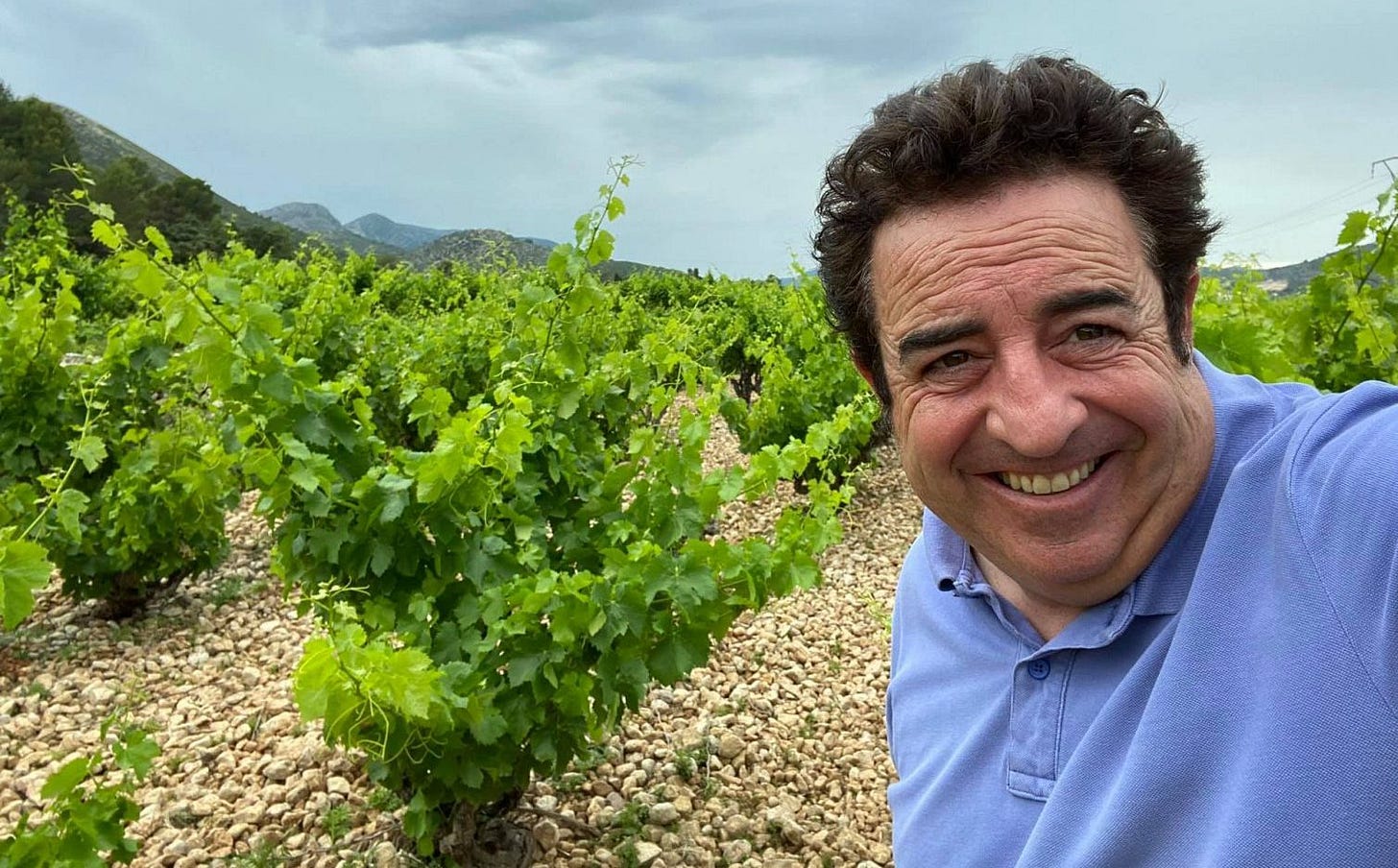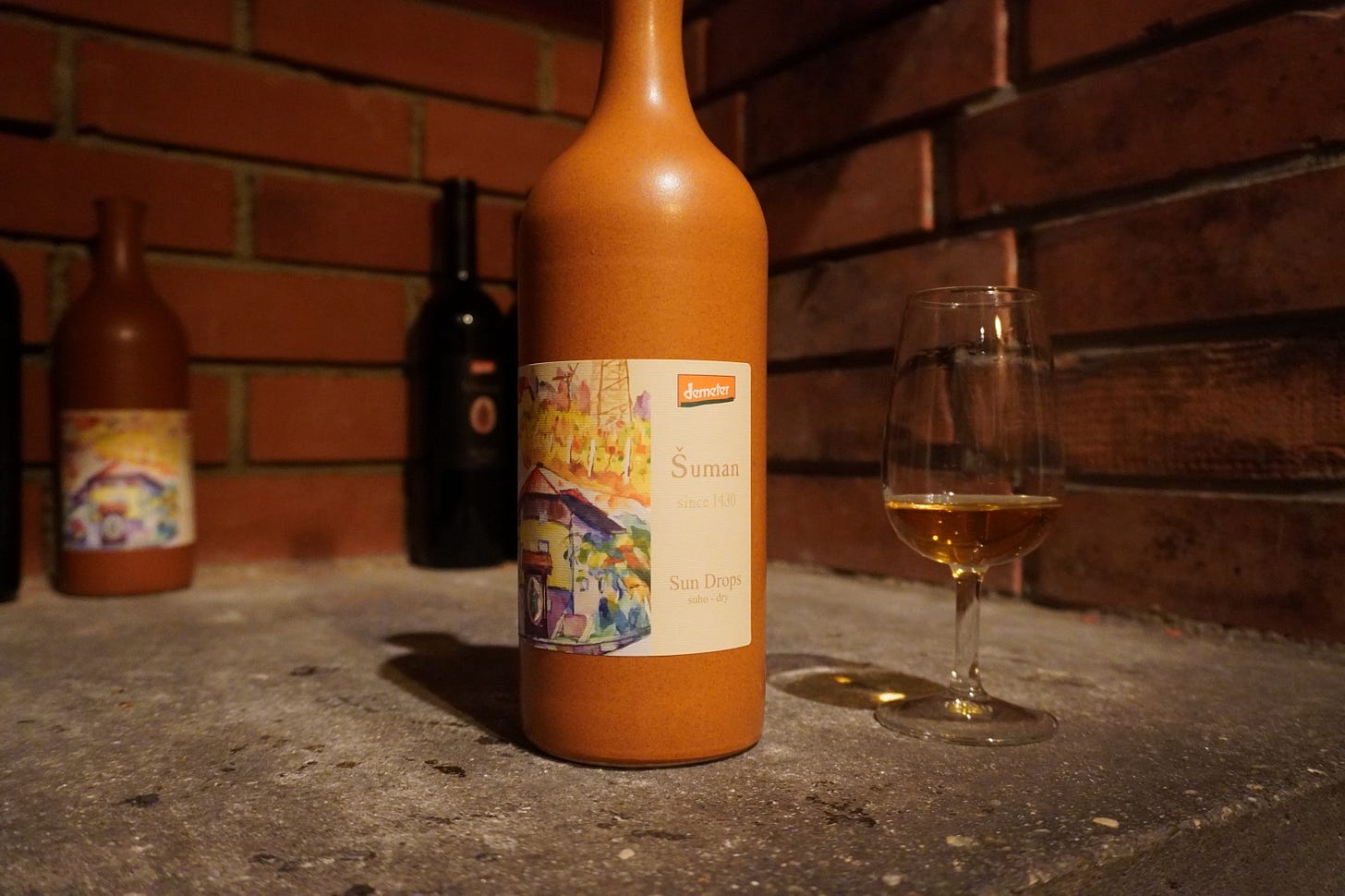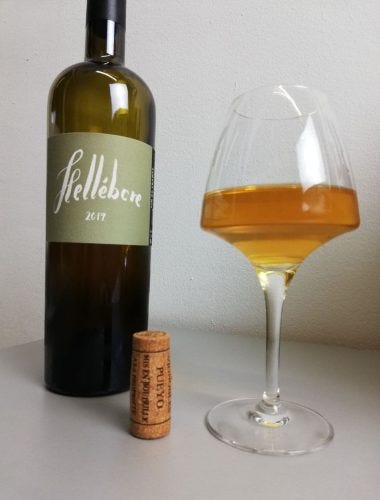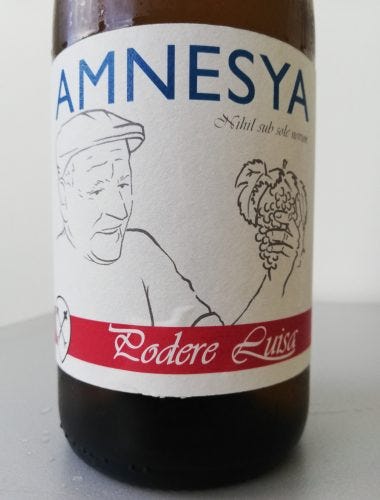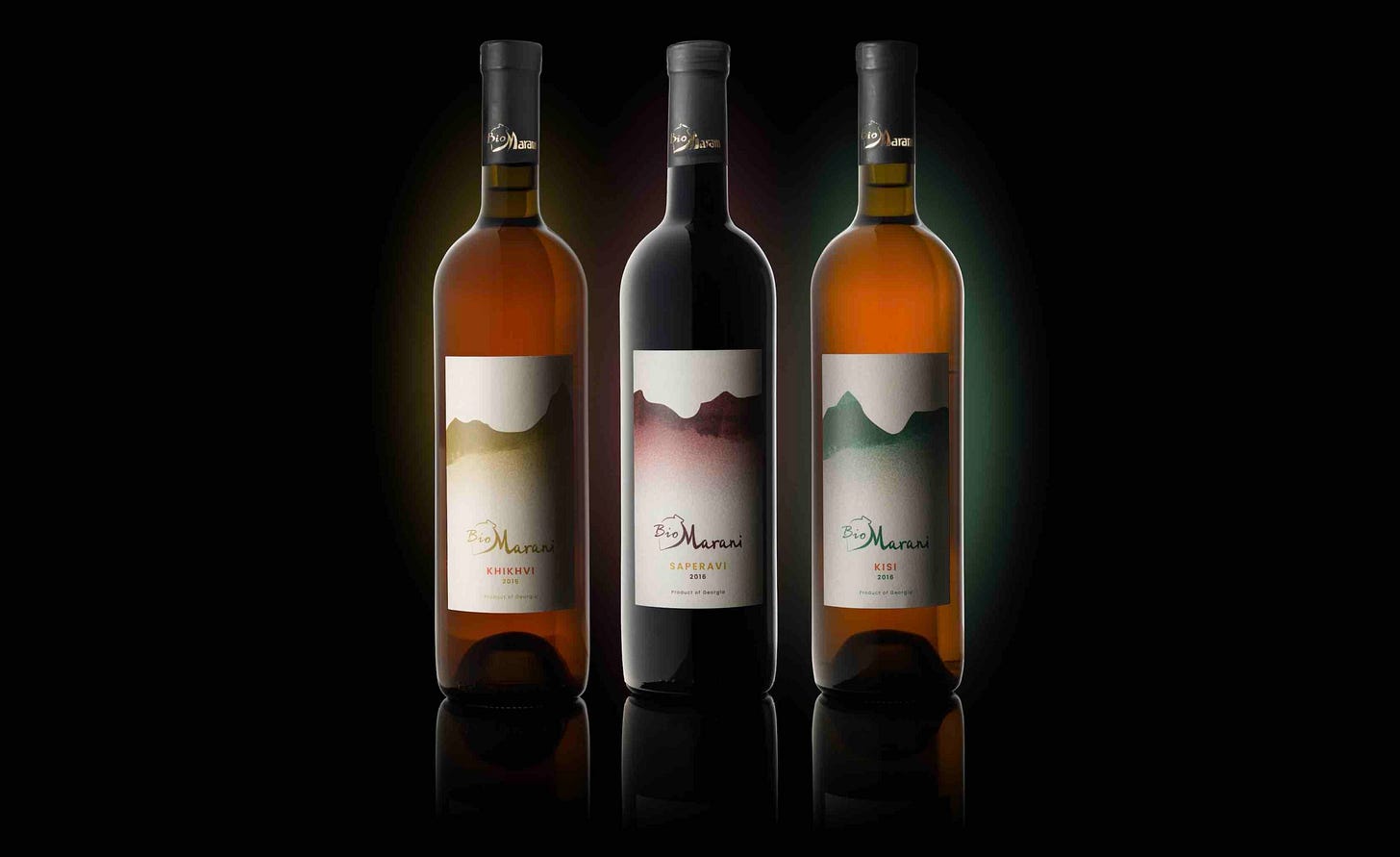Why natural wine matters in 2020 - My top five discoveries of the year
Why you should choose organic, biodynamic and natural wines, as a response to the terrible events of 2020 and the pandemic. With five favourite discoveries.
This year has been brutal, on so many counts. Sickness, death and financial ruin have affected millions. My heart also aches for friends and colleagues who work in the restaurant or hospitality trade - a vital link in the chain for wine producers and wine lovers alike, and an industry that is now in crisis.
Not to mention those whose business is organising events, or the many growers who saw their vineyards go up in flames during the forest fires of Australia or California.
2020 is a year that many of us just want to forget.
But life goes on. Grapes were harvested, wine was made. Some of it will turn out to be outstanding. Hard times remind us of what really matters too - human contact, friendship, conviviality.
I still know of no better way to enjoy life than to invoke the holy trinity of good food, wine and company - even if that company comes in smaller numbers, or via a screen.
Arguably there has never been a more important moment to consider what we eat and drink. The pandemic has prompted discussion about two unpalatable facts of modern life: first, that factory farming may play a part in spreading viruses much faster than they might otherwise have spread. Second, that the global food supply chains which govern what we eat can be surprisingly fragile.
Small-scale food production and local sourcing are the alternatives. Farmers and wine growers who work organically or biodynamically, respecting nature's yields rather than maxing out their production with synthetic fertilisers or growth promoters, are part of the solution.
This is a central tenet of the natural wine ethos.
Natural wines are typically made in small quantities, with farming that does not rely on synthetic inputs or the economics of mass-production. This, to me, makes them the best possible choice if one does not want to support food production systems that hurt both our health and the planet.
If that's too political for you, there's another imperative to go natural. These wines are often "more outspoken" (as my sommelier friend Alessandro da Fies once said), more "digestible" as the French might say and just plain more fun.
On that note, here are five of my top 2020 discoveries. These wines (and winemakers) didn't just make me excited in a geeky way - they made me want to finish the bottle. In my book, that's a better mark of quality than any review or score.
Take these pleasures where you can. Every tasty sip, every fleeting conversation, every little scrap of enjoyment is worth cherishing.
Pepe Mendoza / Casa Agricola - Velo Flor Anfora 2017
One of the year's biggest surprises came from Pepe Mendoza, a Spanish winemaker whose estate (Casa Agricola) is in Alicante, southern Spain. Looking at the labels, I wasn't sure what to expect - the design looked a bit corporate. The wines blew me away.
I've selected Pepe's Flor aged Merseguera (with a homeopathic splash of Moscatel in the blend) as my top pick, but I could easily have selected his elegant Monastrell based blend "Giro", or the wonderful Moscatel Purezza - a skin fermented amphora wine.
Wines aged under flor, excepting sherry, are rarely my thing. If the flor dominates, or oxidative notes start to creep in, I lose interest. This wine astounded me, because here the flor seemed to serve to concentrate the aromas and the fruit. I've never experienced a wine that had such a gorgeous neroli perfume. Read the full tasting note here.
After tasting the wines, I invited Pepe as a guest on my Instagram live series in June. His infectious enthusiasm spilled off the screen as he told a captivating story - starting out as a winemaking consultant for major wineries, his lightbulb moment came when he visited Georgia for the first qvevri symposium in 2011. It set him on a totally different path, wanting to make wine in a more hands off way, and also to farm with minimal intervention.
In the insta interview he has some fascinating observations about how vines adapt to their environment in a hot climate, and how his wines always end up so full of life, freshness and acidity.
Šuman - Sun Drops 2017
How could one of east Slovenia's biodynamic pioneers, and producers of fine orange wines have evaded me for so long? Radovan Šuman has been farming organically for almost two decades, and got his Demeter certification in 2012. My visit to his idyllic corner of Štajerska (Slovenia Styria) stayed long in the memory because it was the very last weekend before Europe went into lockdown in March 2020. A full account of that visit is here.
Radovan's vineyards are quite literally full of life - sheep, dogs, chickens and bees all share the space. It was easy to forget about Covid-19 while I was there.
Sun Drops is Radovan's most "orange" wine, a blend of Sauvignon Blanc and Traminer macerated for between three to six weeks in large format barrels. It's full of exotic fruit - guava, bergamot, passion fruit - and just dances on the palate with subtle and very refreshing sour herbal twang. But it also has that texture - a proper tannic grip that I adore in this style. The wine explodes with the same life-force that's plain to see in the vineyards, but without any unwelcome alcoholic punch.
Radovan is one of three biodynamic pioneers and acolytes in Štajerska, together with Bozidar Zorjan and Aci Urbajs. Radovan keeps the lowest profile, and doesn't feel that he needs to visit wine fairs to sell his wine. His website looks like it was last updated when 56K modems were still popular. He doesn't care - he has loyal customers, and I am one of them now.
Vignobles Pueyo - Hellebore 2017
When I last visited Bordeaux, researching a Decanter article in 2019, I met up with Jane Anson and made a joke about orange wine in Bordeaux. She countered, quite rightly, that such a thing exists! But I hadn't really found a convincing one until Christophe Pueyo offered to let me taste his.
Not familiar with Vignobles Pueyo? The St. Emilion estate La Fleur Garderose is their main property, along with Château Belregard-Figeac. The family's vineyards are organic certified since 2010, and Christophe is now moving to biodynamics.
These are truly classic wines from Bordeaux, but made with minimal intervention and the use of larger format oak in place of the usual barriques. A great combination, in my humble.
Hellebore is an orange wine made from 100% Semillon - not a variety I'd have guessed would make a good orange, as it can lack acidity. But here, with a whopping 10 months of skin time in amphora, and just a pinch of sulphur at bottling, the wine is packed with red grapefruit, pear and quince fruit that if anything reminds more of Sauvignon Blanc. It's all supported by fine tannins and a refreshing seam of acidity.
It's a wine with the depth and gravitas I'd expect from Bordeaux - just in an orange guise. Quite delicious, and something to ponder as well as enjoy. The 2018, which is not yet released, promises to be just as good, albeit with a bit more ripeness and structure.
Podere Luisa - Amnesya 2017
The third in a trio of substantial orange wines, Amnesya comes from a small Tuscan estate in the middle of Chianti-country. Podere Luisa are biodynamic certified, and have a heavenly looking agriturismo that I hope one day to visit.
Father Beppe and (increasingly) son Sauro are in charge of winemaking. Their sole "white" wine (in fact an arse-kicking orange) is made from a chunky, flavour-packed blend of Malvasia (guessing di Candia) and Trebbiano.
These are grape varieties that don't come quietly when they're skin fermented. And this a big textured, hearty and marvellously rustic wine, with tannins that could wake the dead. There's an exotic perfume of candied fruits and herbs, which heads a little in the direction of La Stoppa's Ageno.
I don't use the word rustic in a pejorative way here. The wines feel like they have a deep connection with the soil. They're wines you want to cuddle up with next to the fire - nothing austere, manicured or polite about them. But neither are they faulty or weird.
I also loved a bloody, fruit-focused Sangiovese (bottled as Toscana IGT), but it was Amnesya that (ironically) stayed longest in my memory.
These guys, like Šuman, seem to keep a low international profile - their wines are of course available in Japan. But what isn't? I'll be beating a path to their door as soon as I can, if nothing else just so I can have another fix of.... sorry what was it called again?.
Bio Marani - Saperavi 2016
The expansion in the number of Georgia's small, artisan wineries continues apace. There are plenty of misses, bandwagon jumpers, clumsy wines. And then there are real stars emerging. So far, this is the only wine I've tried from Bio Marani - a family winery based in Kakheti, Georgia. It's exceptional.
Now about that name - Bio Marani - is a little inspirational, as their tech sheets list their grapes as "in conversion to organic". But it's a good start.
Some of Georgia's growers seem to delight that their Saperavi is reaching 16% alcohol or more. I recoil in horror. Here, restraint was exercised and the result is a seriously smashable wine that reminded me of great Loire Cab Franc. Saperavi's crunchy red berry is present and correct, as are its grippy but ripe tannins and its spiciness. Then there's just the right lick of gamey, earthy funk - again think Cab Franc. It really adds excitement.
This Saperavi is a true vin de soif, loaded with typicity and energy. And as with all good qvevri wines, the lack of oak or excess oxidation makes it particularly joyful. And thank you Bio Marani for releasing this 2016 now, and not when it was still in nappies. These wines have so much more to give with a few years' bottle age.
If the Kisi and the Khikhvi are this good, there's a treat in store.
On that basis alone, I'm looking forward to 2021. Cheers!


